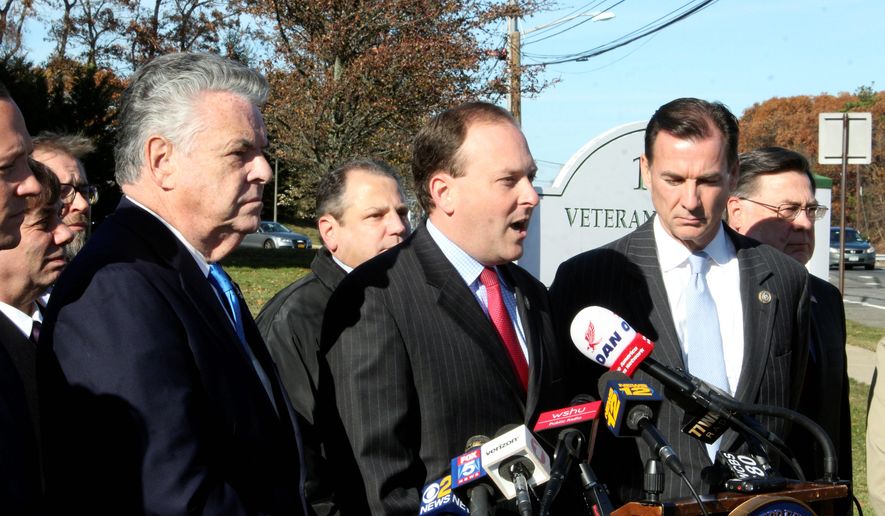Republicans’ tax-cut win Tuesday wasn’t without hiccups, as a dozen of their members weren’t able to buy into the bill, saying they worried their own constituents would end up falling behind.
This latest incarnation of a tax code overhaul turned deeply partisan, and while the bill cleared the House easily and sailed through the Senate later Tuesday, the lack of Democratic votes and opposition from some in the GOP served as a stain.
Most of the 12 House Republicans who voted against the bill were from high-tax Democratic-led states, and they said they expected their constituents to get less of the benefits than other Americans.
“Getting this bill done and getting this bill done right should not have been a binary choice,” said Rep. Lee Zeldin, New York Republican. “On balance, this bill remains a geographic redistribution of wealth, taking extra money from a place like New York to pay for deeper tax cuts elsewhere.”
The insurmountable hurdle for those Republicans was a limit on the amount of state and local taxes that could be deducted from federal taxes. After long haggling, Republicans agreed to a compromise, allowing up to $10,000 of all state and local taxes to be deducted.
That was enough to win over Rep. Tom McClintock, a California Republican who voted against the first House version in November but backed the compromise bill Tuesday.
“A couple earning $60,000 with a $300,000 home and three adult dependents would have paid $200 more in taxes under the old bill — but under the new version they will save $340,” he said in a statement explaining his vote, saying the new bill “exceeds my expectations.”
Two of Mr. McClintock’s fellow California Republicans were among the dozen “No” votes, as were five New Yorkers and four GOP lawmakers from New Jersey.
Each of those is a high-tax state.
“The average [state and local tax] deduction in my district is $18,355. Many New Jersey taxpayers, including homeowners who pay some of the highest property tax rates of any state, could see their taxes go up,” said Rep. Chris Smith, a New Jersey Republican and a “No” vote.
Rep. Frank LoBiondo, another New Jersey Republican, said the decision to vote against the bill wasn’t tough.
“No agony,” he said on Twitter, defending his vote against criticism from constituents who said his vote was misdirected.
Rep. Elise Stefanik, New York Republican, said the blame lies with her state government for its high taxes and spending rates. But she still said she couldn’t put a bigger burden on her constituents.
“Failure to maintain [the state and local tax deduction] could lead to more families leaving our region,” she said.
The lone Republican not from a non-high tax state to vote “no” was Rep. Walter Jones, who said that while he feared some of his North Carolina constituents would end up falling behind, his biggest concern was the country would suffer as a whole with the new debt piled up.
“I’m all for tax reform, but it must grow the economy, not the debt,” Mr. Jones said.
Tuesday’s House vote was far more partisan than past tax cuts.
President George W. Bush’s 2001 tax cut passed the Senate 58-33, with a dozen Democrats voting for it, and cleared the House 240-154, with 28 Democrats voting for it. Just two Republicans, both senators, voted “No” that year.
The follow-up tax cut in 2003 was more partisan, but it still earned some Democratic support, with two senators and seven House Democrats voting in favor. Four Republicans — three in the upper chamber and one in the House — opposed that tax cut.
• Stephen Dinan can be reached at sdinan@washingtontimes.com.




Please read our comment policy before commenting.